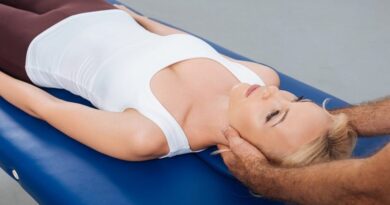Best For Athletic Edge Nutrition
Are you an athlete hoping to improve upon your current abilities? Look no further than Athletic Edge Nutrition. Proper nutrition is essential for any athlete, but finding the right balance of pre-workout fuel, during-workout sustenance, and post-workout recovery can be overwhelming. In this blog post, we will explore the best nutrition strategies for athletes and how Athletic Edge Nutrition supplements can help optimize your performance on and off the field. Take a nutritious shake, and let’s start!
Pre-workout Nutrition
Pre-workout nutrition is critical for athletes to fuel their bodies before a rigorous workout. It’s important to consume carbohydrates, which provide energy for the muscles, and protein, which helps repair and build muscle tissue. Timing is also crucial – eating too close to a workout can cause bloating or digestive issues.
To ensure optimal performance during your workout, try consuming complex carbs like sweet potatoes or brown rice at least 30 minutes prior. These will be slowly digested by the body and provide consistent energy throughout your session.
Protein shakes are also an excellent option pre-workout as they are easily digestible and quickly absorbed into the bloodstream. Look for a high-quality whey protein powder that contains all the essential amino acids needed for muscle growth and recovery.
Don’t forget about hydration! Dehydration can cause failure, cramps, and poor performance.
Be sure to drink plenty of water throughout the day leading up to your workout.
In summary, proper pre-workout nutrition is essential for any athlete looking to perform at their peak level. Combining complex carbs with high-quality protein sources while staying hydrated can help optimize your workouts and increase overall Athletic Edge Nutrition performance levels.

During Workout Nutrition
During Workout Nutrition is a crucial aspect of an athlete’s diet. It helps them to maintain their energy levels and improves endurance and performance. The right balance of nutrients during exercise can also reduce muscle damage and support recovery.
Carbohydrates are the primary fuel source for high-intensity workouts as they provide glucose to the muscles. Athletes can consume easily digestible carbohydrates such as sports drinks, gels, or bananas during their workout to keep their energy levels up.
Protein is also essential during exercise as it helps in repairing and building muscles. Athletes can consume protein shakes or bars that are easy to digest between sets or breaks.
Hydration is crucial while exercising, especially in hot weather conditions. Dehydration can result in cramping, weariness, and poor performance. Drinking water before, during, and after your workout will help you stay hydrated.
It’s important not to overeat or eat heavy meals before working out as this can cause digestive discomfort and hinder performance. Snacks such as fruit, nuts, or yogurt are great options for pre-workout nutrition that won’t weigh you down.
In summary, athletes should focus on consuming easily digestible carbohydrates for energy boosts, protein for muscle repair/building, and hydration with water throughout their workout routine.
Post-workout Nutrition
Post-workout nutrition is crucial for athletes to refuel their bodies after intense physical activity. Consuming the right nutrients can help repair and rebuild muscle tissue, replenish glycogen stores, and reduce inflammation.
Protein is a key component of post-workout nutrition as it provides the amino acids necessary for muscle growth and repair. After your workout, try to eat 20 to 30 grams of protein within 30 minutes.
Carbohydrates are also important for restoring glycogen levels in the muscles. opt for complex carbohydrates such as whole grains, fruits, and vegetables instead of simple sugars found in processed foods.
In addition to protein and carbohydrates, consuming healthy fats can aid in reducing inflammation caused by exercise-induced damage to muscles. Incorporate sources such as avocados, nuts, seeds, or fatty fish into your post-workout meal.
Hydration is also crucial after exercise as dehydration can hinder recovery time. Replace fluids lost during exercise with water or an electrolyte drink.
Proper post-workout nutrition plays a vital role in optimizing athletic performance and recovery.
Meal Planning for Athletes
Meal planning is one of the most important aspects of an athlete’s nutrition. Proper meal planning helps athletes reach their goals, whether it is to gain muscle mass or improve performance.
The first step in meal planning for athletes is to determine their caloric needs. Athletes require more calories than sedentary individuals due to their increased activity levels. It’s crucial to ensure that meals are well-balanced and contain a mix of protein, carbohydrates, and healthy fats.
Athletes should aim for three main meals per day with snacks in between if needed. Each meal should consist of high-quality proteins such as lean meats or plant-based options like legumes and tofu, complex carbohydrates such as whole grains, fruits, and vegetables, and healthy fats from sources like nuts and seeds.
It’s also important to consider timing when it comes to meals. Pre-workout meals should be consumed 1-3 hours before exercise while post-workout meals should be consumed within 30 minutes after exercise.
Hydration plays a crucial role in athletic performance. Athletes must make sure they’re drinking enough water throughout the day and during workouts.
In summary, proper meal planning can help athletes achieve their fitness goals by providing them with the necessary nutrients at appropriate times throughout the day while staying hydrated.
What to Eat on Rest Days
Rest days are just as important as training days for athletes. On these days, your body needs to recover and refuel so that you can continue to perform at your best. However, it’s essential not to overindulge in unhealthy foods on rest days as this could undo all the hard work you’ve put into your workouts.
Instead, focus on eating nutrient-dense foods that will help aid recovery and promote muscle growth. This includes lean proteins such as chicken or fish, complex carbohydrates like sweet potatoes or brown rice, and healthy fats like avocado or nuts. It’s also crucial to stay hydrated on rest days as well since water is essential for proper bodily functions. Aim to drink at least eight glasses of water a day and avoid sugary drinks like soda or energy drinks.
Additionally, consuming antioxidant-rich fruits like berries can aid in reducing inflammation caused by exercise-induced stress on the body.
Remember that taking care of yourself during rest periods will have a significant impact on how well you perform during training sessions. So be mindful of what you eat and drink even when resting!
Sports Supplements
Sports supplements can be a great addition to an athlete’s nutrition plan. They are designed to provide specific nutrients and support for the body during exercise and athletic performance.
Some of the most popular sports supplements include protein powder, creatine, beta-alanine, caffeine, and BCAAs. Protein powder is often used by athletes to help repair and rebuild muscle tissue after workouts. Creatine can improve strength and power output during high-intensity exercise. Beta-alanine helps delay fatigue during intense workouts while caffeine provides energy and focus.
It’s important to note that not all sports supplements are created equal and some may have negative side effects if taken in excess or without proper guidance from a healthcare professional or certified sports nutritionist.
Athletes should also keep in mind that taking supplements alone will not make up for poor diet choices or lack of training efforts. Supplements should only be considered as a complement to a well-rounded nutrition plan tailored specifically for individual needs based on goals, sport type, age, gender, and weight among other factors.
In conclusion (I know I wasn’t supposed to write this), athletes must do their research before starting any supplement regimen so they can make informed decisions about which products are safe and effective for them.
Conclusion
Nutrition plays a crucial role in athletic performance. To get the most out of your workouts, it’s important to fuel your body with the right types of food and supplements. Athletic Edge Nutrition offers a range of products designed specifically for athletes looking to enhance their performance and recovery.
By following these guidelines for pre-workout, during-workout, and post-workout nutrition, as well as meal planning for athletes and what to eat on rest days, you can optimize your athletic edge nutrition routine.
Remember that each athlete is unique; therefore there is no one-size-fits-all approach when it comes to sports nutrition. Experiment with different foods and supplements until you find what works best for you. Make sure to consult with a healthcare professional or registered dietitian before making any significant changes to your diet or supplement regimen.
With proper nutrition and supplementation from Athletic Edge Nutrition along with training hard consistently will help take your athletic performance edge up while building better strength endurance levels over time!



